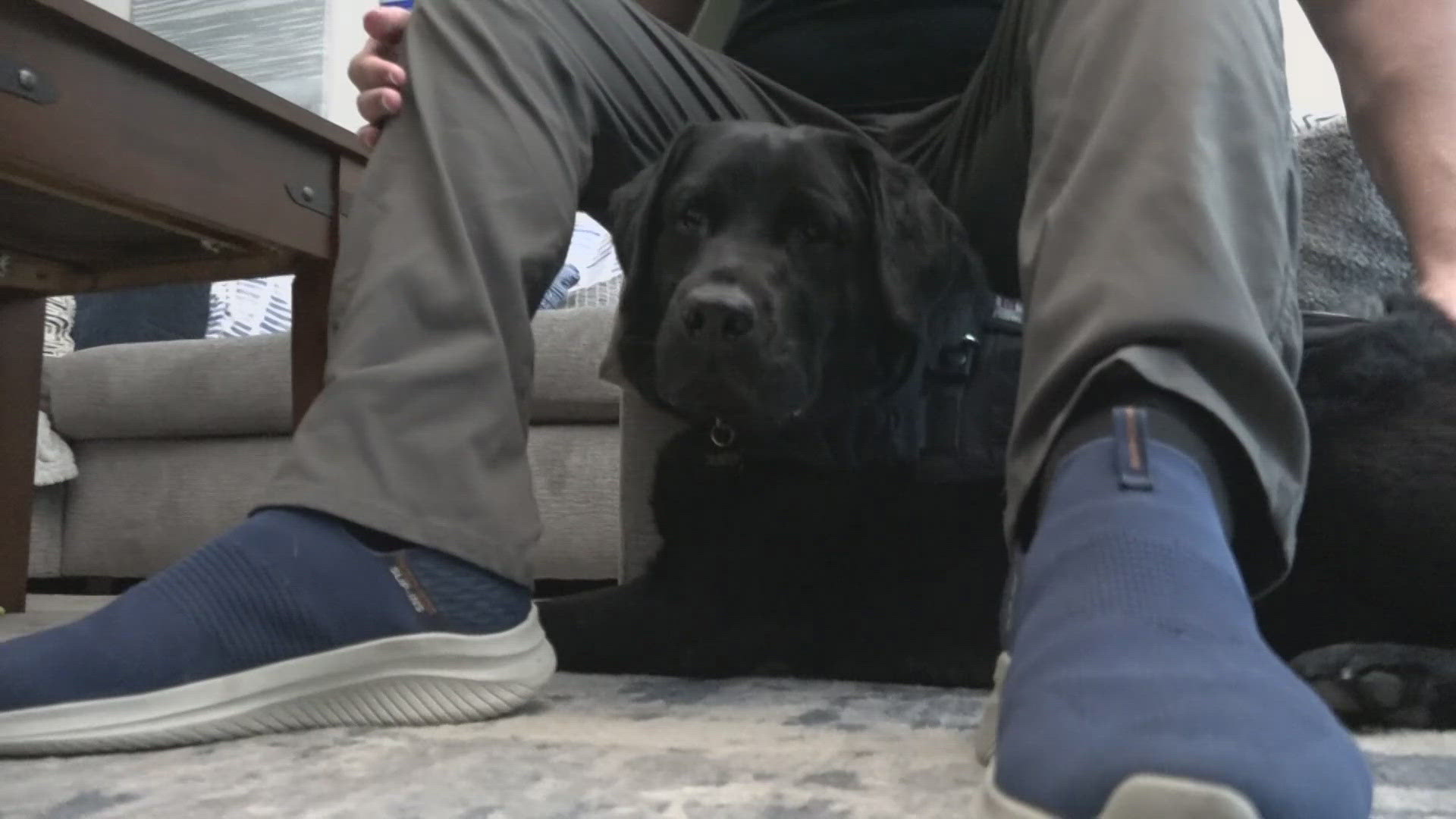PHOENIX — It was almost impossible for Jay William Cook II to drive when he came home to Arizona after serving in the U.S. Army following 9/11.
“I was constantly like hyper-vigilant to an insane degree. I'd turn off the road if an orange cone had moved, because over there construction sites, they would steal some of that stuff and use them for bomb markers. Bomb markers. So - I couldn't trust anything,” Cook said.
That is, until Spalding, a rescue dog turned service dog by K9s for Warriors, entered Cook’s life.
“It was just, I hate to be – but - love at first sight, just all that energy. She poured it all into me,” Cook said.
It was Spalding that Cook credits with allowing him to go back to normal activities like working, going to college and even to outings at large events with a lot of people.
“Just also knowing that she was right there allowed me to turn down that vigilance, not be worried about what's going on behind me all the time,” Cook said.
The relief and help Cook has found through having a service dog is an experience veterans have long spoken about as helping their post-traumatic stress disorder symptoms and quality of life.
Now researchers at the University of Arizona have found scientific evidence that service dogs have a significantly positive impact on veterans’ mental health.
“We know that veterans are struggling. They face high rates of depression, anxiety and suicide,” said Maggie O’Haire, associate dean for research for the College of Veterinary Medicine at the University of Arizona. “Our studies are showing that veterans with a service dog appear to be struggling less.”
The recently published study followed 156 veterans, half receiving a service dog after their first assessment.
O’Haire said the team looked at the veterans’ PTSD symptom severity, depression, and quality of life.
“We found that veterans with a service dog were functioning significantly better. They had lower PTSD symptoms, less depression and anxiety, and overall, a higher quality of life,” O’Haire said.
O’Haire said clinicians they worked with who regularly diagnose and treat PTSD also found service dogs make a difference in the veterans they studied.
“Their independent analysis showed that veterans with a service dog had 66% lower odds of having a diagnosis of PTSD,” O’Haire said.
In an area that O’Haire said is understudied, she hopes the research will help serve more veterans.
“My hope is that we're putting scientific evidence in the hands of people who need it, whether that be insurance coverage, whether that be policymakers, whether that be clinicians, who have someone coming in to ask for a service dog,” O’Haire said.
Cook has retired Spalding after eight years of serving as his service dog and recently was partnered with a new service dog through K9s for Warriors.
Now, Thunder is by Cook’s side wherever he goes.
“It's also a tool. It's like a wheelchair. You can kind of sometimes go without it. Maybe you can still move around, but you're just so much better equipped when you're with them,” Cook said.
UP TO SPEED

